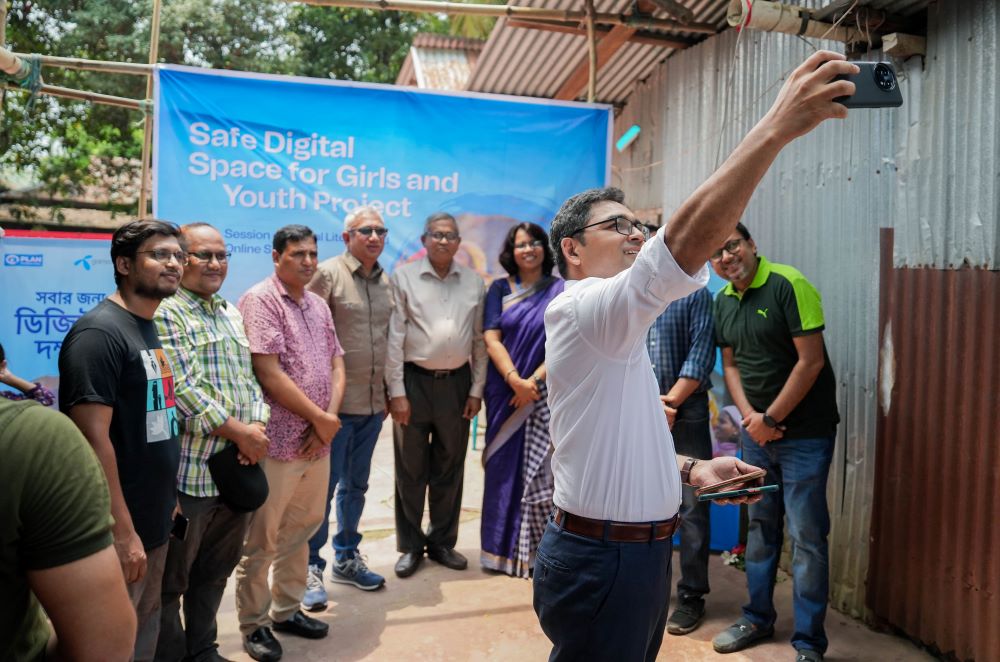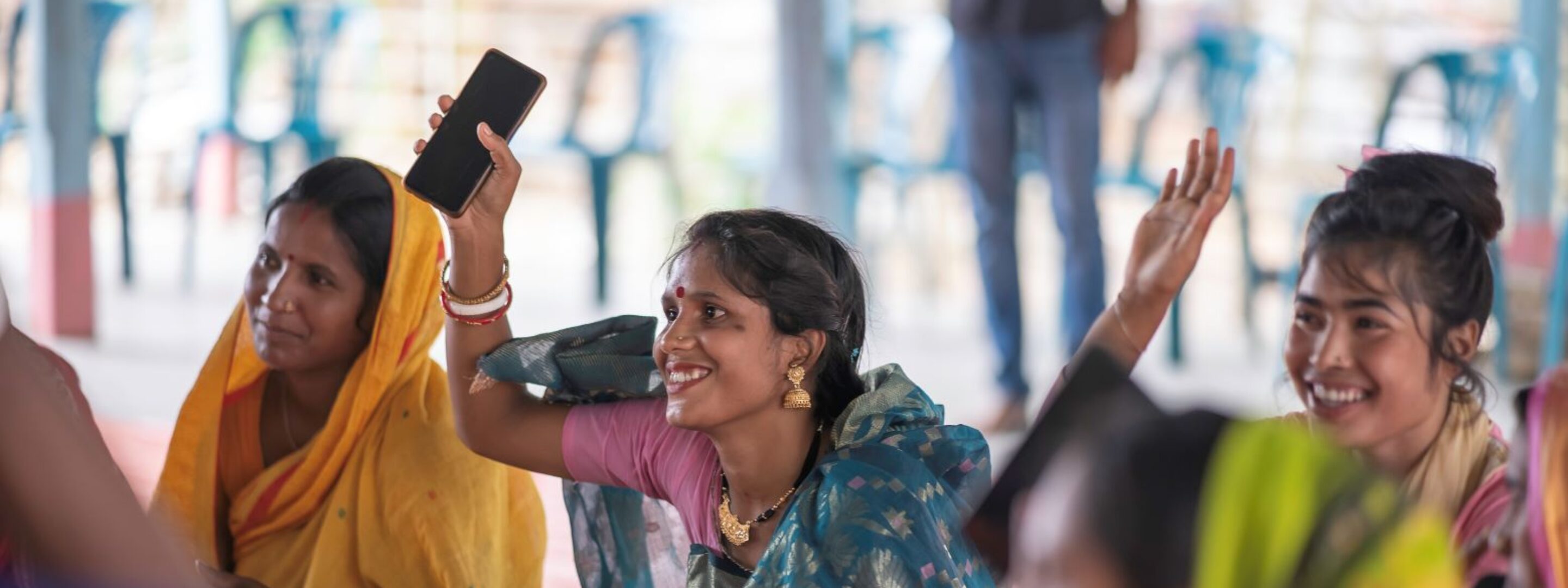Scaling digital inclusion meaningfully in Bangladesh
Scaling digital inclusion meaningfully in Bangladesh
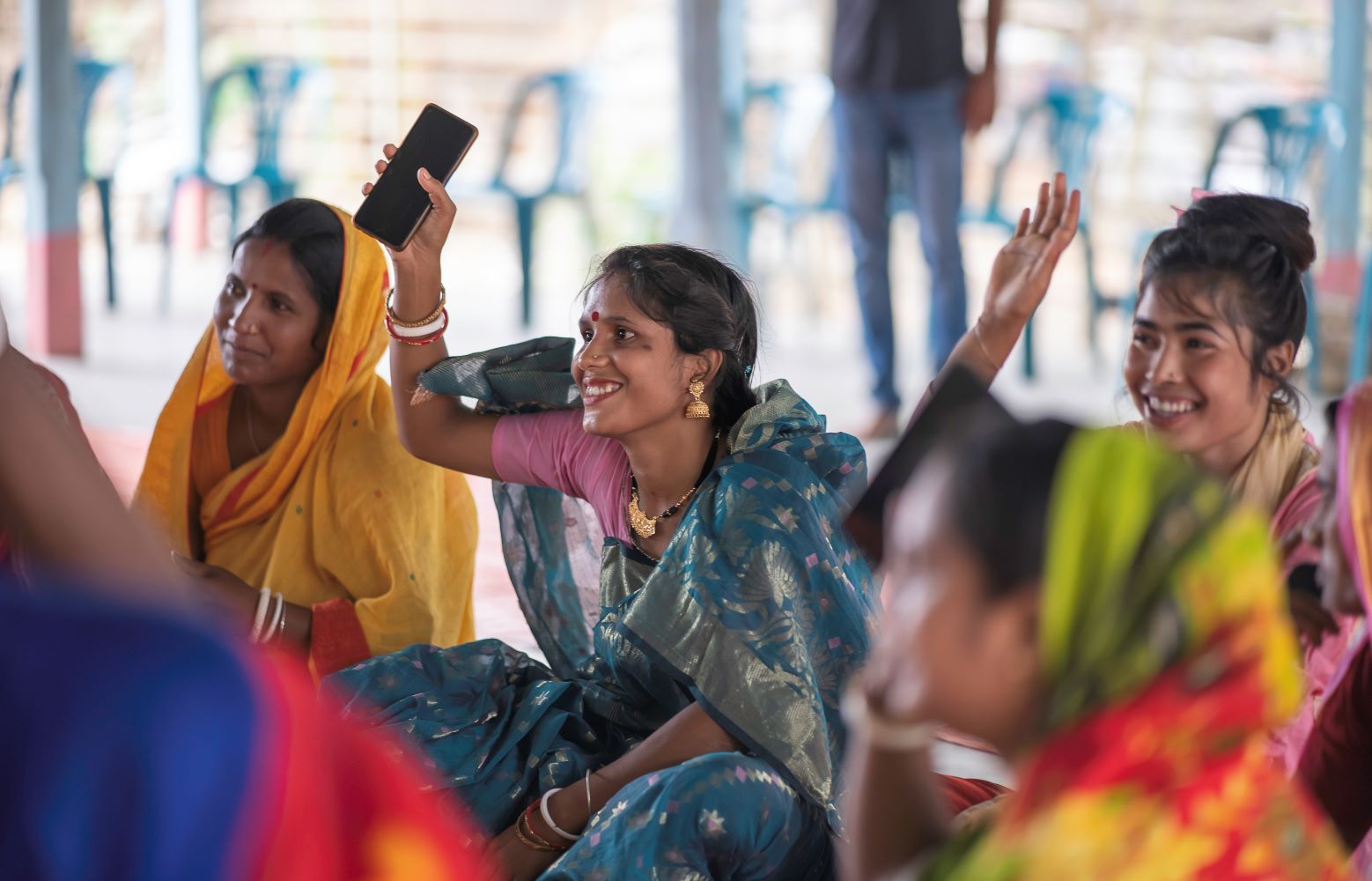
The mobile phone is a powerful tool, transcending basic communication needs to serve as a digital gateway to information, marketplaces, and essential governmental services. In Bangladesh, where access to digital resources can significantly impact livelihoods, ensuring that everyone can benefit from this technology is crucial.
In 2023, Grameenphone together with Telenor and their global sustainability partner Plan International, set out to enhance digital skills and resilience to create safe online spaces for 2,350,000 girls and youth from marginalised communities in Bangladesh.
Since then, Safe Digital Space for Girls and Youth Projects (SDSGY) has been working with eight marginalised communities across 28 districts, providing training programs designed to address specific local needs.
“It is extremely rewarding to witness the positive effects that our joint project is creating for thousands of beneficiaries in Bangladesh. The teams are doing a fantastic job together with many local organisations in bringing critical digital skills to people who are at risk of missing out on digital opportunities. One important step in narrowing the usage gap by making everyone comfortable with a digital-first approach, feel safe online and enabled to participate in the digital space,” said Manisha Dogra, Head of External Relations in Telenor Asia.
Helping women and girls from the Rishi community take advantage of digital technologies
Outside the Ram Rabon Temple in Damraj Risihpara on the outskirts of Dhaka, a group of women and girls from the Rishi community is gathering for a session on digital literacy and skills. More than 800 families from the Rishi minority living in this area are gradually using new technologies to improve their livelihoods. Today’s training session is on online safety and how the mobile phone could be used to set up a business to sell local products.
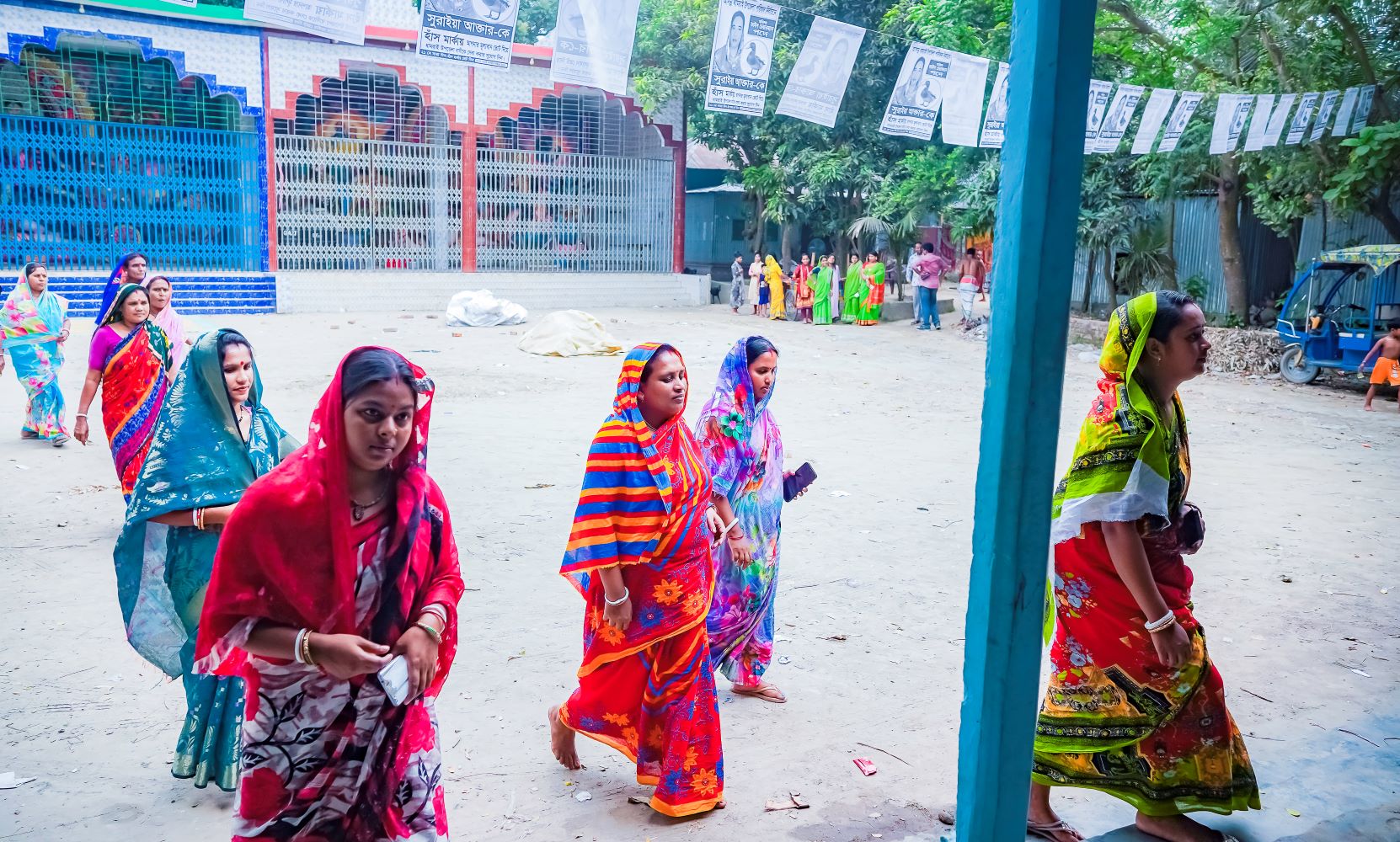
Helping people with disabilities build digital skills
People with disabilities often face unique challenges when it comes to employment, accessing public services, and social integration. This gap is widened by the “digital divide”, which represents additional hurdles for disabled individuals. Together with implementing partners “Youth for Change” and “Team Inclusion”, SDSGY aim to bridge this gap and help people with disabilities find safe communities online and improve livelihoods.
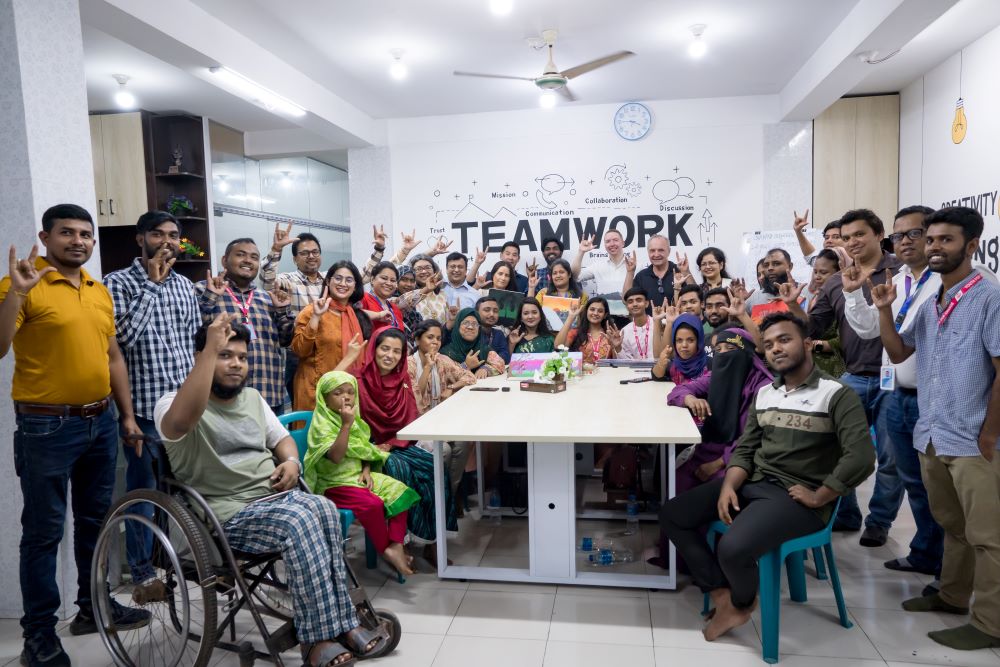
Enabling tea garden workers to utilise digital government services
Lakkatura, one of the largest tea gardens in Bangladesh, produces an impressive 550 tons of tea each year – enough to meet the annual tea needs of 100,000 people. Tea picking is physically demanding, and tea garden workers are one of Bangladesh’s most marginalised and vulnerable groups. This afternoon, tea garden workers gather under a shaded tent to learn how to use mobile financial services and other essential government services like voter ID application and birth registrations. Empowering them with digital literacy can make a difference in their lives.
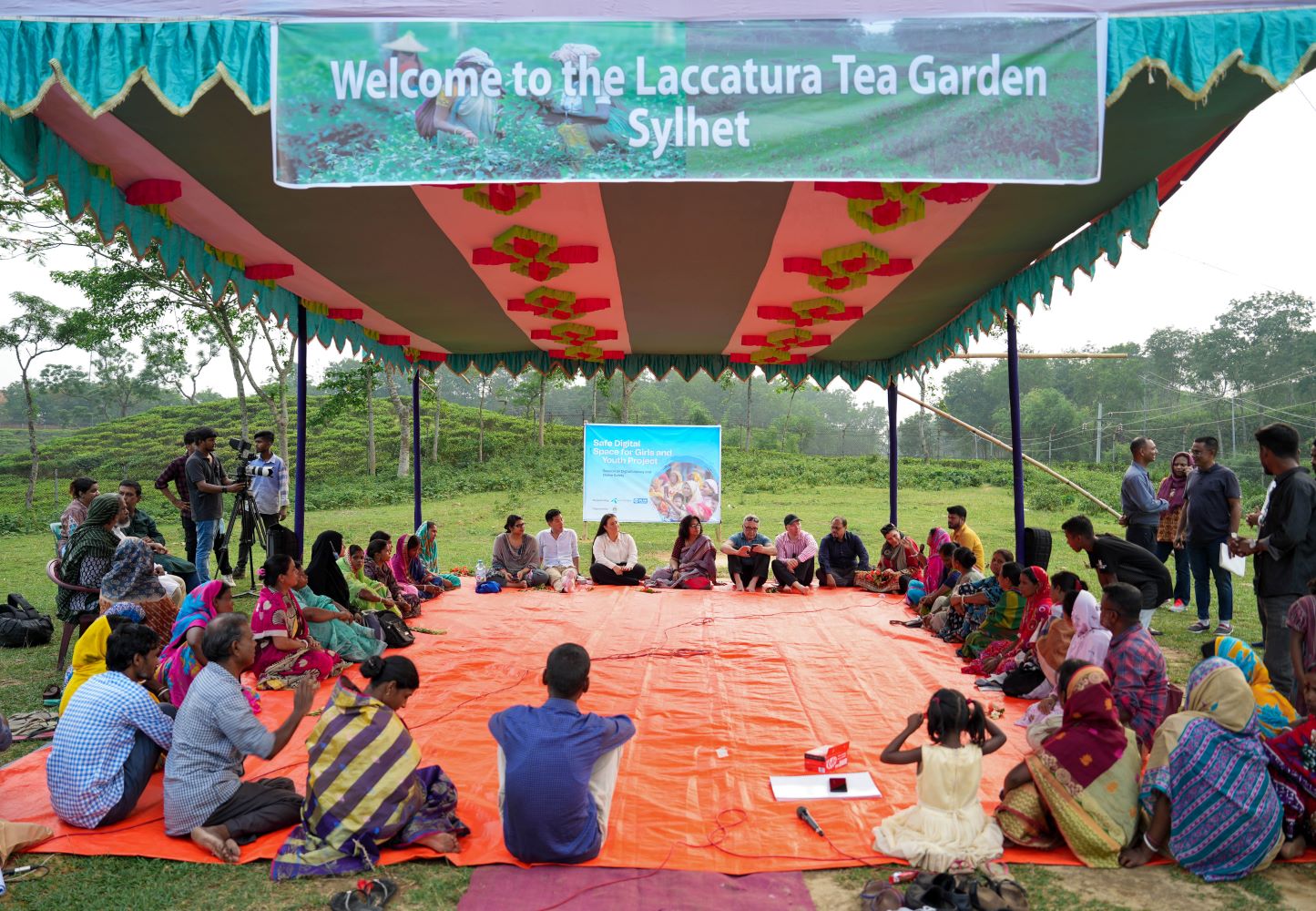
Working with community radio stations to extend project impact
Local radio stations continue to play a vital role in Bangladesh, providing customised entertainment and important information to diverse audiences. Radio Polli Kantho is one of the eight community radio stations that have developed engaging and popular digital skills educational programs. Grameenphone Chief Marketing Officer Sajjad Hasib appeared as a special guest engaging with listeners to answer practical questions on how to protect passwords, avoid online fraud and help setting up an online shop. By fostering digital literacy through radio, the project can extend vital information and deliver positive impact to remote rural communities.
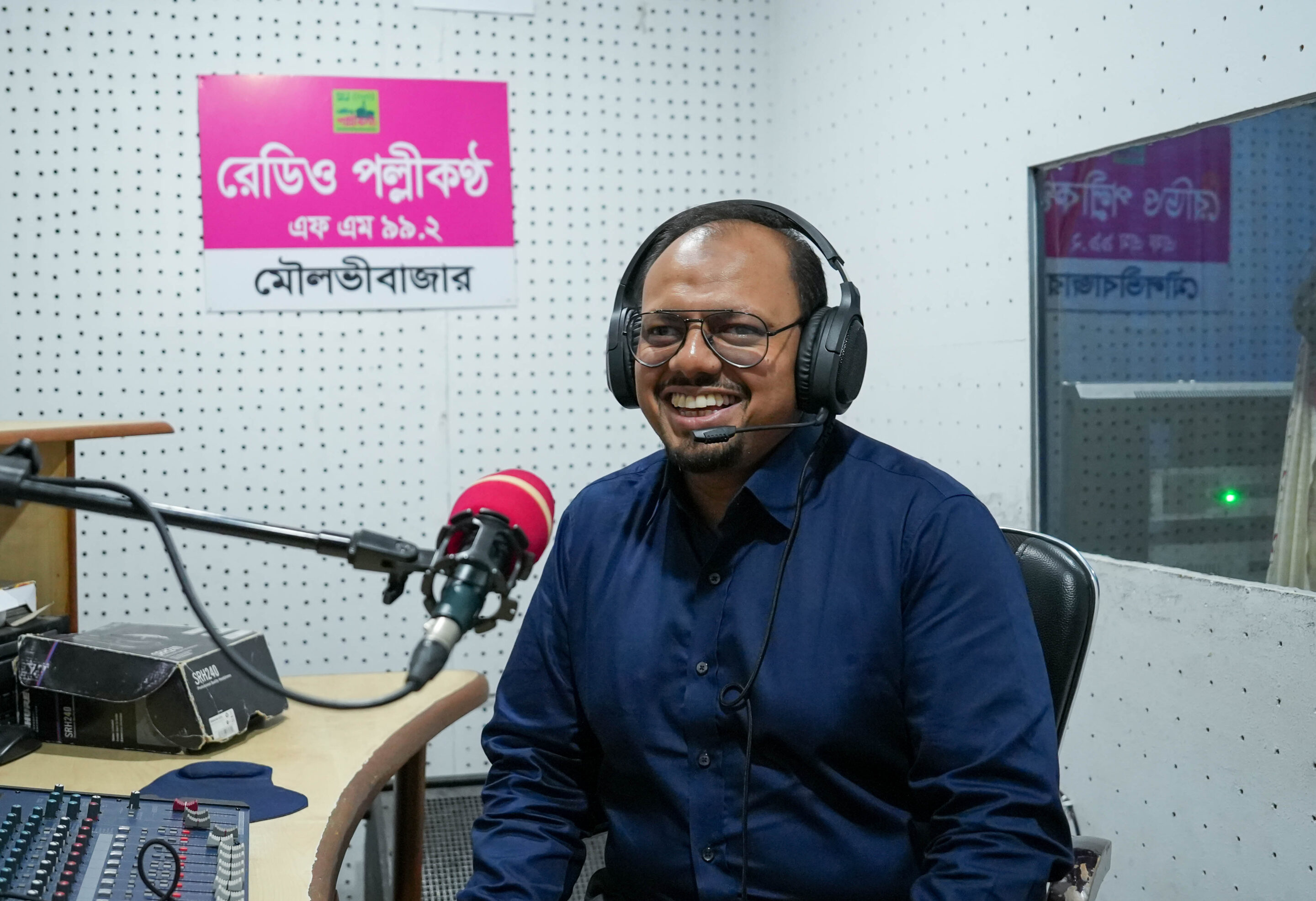
Equipping fishermen communities with critical skills to take advantage of digital tools
The Haor basin is an important wetland ecosystem in the northeastern corner of Bangladesh. The country is vulnerable to climate change, and this remote area is flooded every year during the monsoon season. Grameenphone CEO, Yasir Azman joined local fishing communities to understand how they are relying on digital skills and connectivity to protect livelihoods and access early warning information ahead of extreme weather events.
